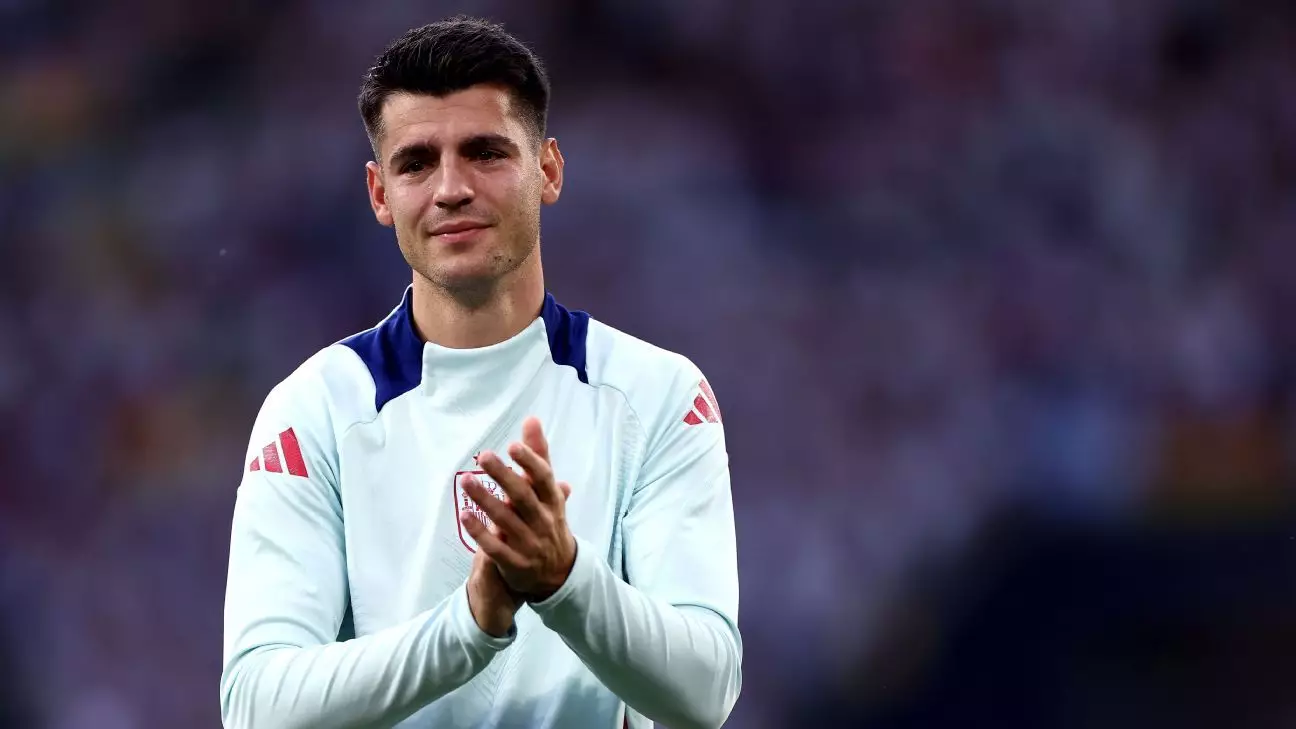Álvaro Morata, the Spanish forward endowed with undeniable talent, represents more than just a pivotal player on the football pitch. He embodies the intense pressures modern athletes face—pressures that often remain hidden beneath the surface. Recently, Morata shared a personal narrative that plunges into emotional depths, revealing his struggles with depression and panic attacks that almost drove him away from the national team. These revelations underscore the psychological toll that both public scrutiny and personal expectations can exert on athletes, transforming their lives into a battlefield of external and internal conflicts.
Morata’s candid acknowledgment that he contemplated quitting the national team highlights the frailty of mental health in sports, a topic that has gained prominence in recent years. He recounted experiences that led him to a point where he felt he couldn’t don the Spain jersey again, raising critical questions about the intersection of mental health and professional sports. As he linked his struggles to an overwhelming sense of embarrassment, particularly during outings with his children, it becomes clear that the burden of public life not only affects the individual but also ripples into their personal relationships, showcasing the visceral human experience behind the athlete’s facade.
Following his emotional tribulations, the summer European Championship marked a significant turn for Morata as he captained his team to victory in Germany. This seemingly redemptive moment, however, followed a period rife with uncertainty. In the months leading up to the tournament, he was ensnared in the throes of self-doubt, pondering not only whether he could continue playing for his nation but also if it was worth enduring the relentless pressure. His eventual decision to transfer from Atlético Madrid to AC Milan symbolizes a fresh start, suggesting that sometimes, physical change can foster mental renewal.
While much of the focus remains on Morata’s athletic prowess and his performance on the field, one cannot ignore the heavy emotional baggage he carried. He expressed relief at having left Spain during a particularly dark period, indicating how a change in environment can catalyze personal recovery. As he navigated this transition, moving to a league where he felt respected and free from undue scrutiny, Morata began to rediscover joy in the game he once enjoyed so fervently.
Morata’s story illuminates a pivotal issue in the realm of sports: the stigma surrounding mental health. While physical injuries are often acknowledged and treated with compassion, emotional and psychological struggles often remain cloaked in silence. Morata’s reluctance to expose his vulnerabilities, compounded by the fears of public opinion, mirrors the experiences of many athletes who grapple with similar challenges yet feel compelled to maintain a façade of invulnerability.
His narrative encourages an essential dialogue about mental health within athletic circles, urging fellow players and fans to foster environments of understanding and support. By openly discussing his journey, Morata reflects a growing trend of athletes who bravely share their struggles, potentially paving the way for increased awareness and a culture that values emotional well-being alongside physical excellence.
As Morata settles into his new role at AC Milan, the path ahead seems brighter. His performance, highlighted by two goals in five Serie A matches, serves as a testament to resilience—a factor that transcends athletic metrics. His ability to confront and articulate his struggles offers hope not just for himself but for others wrestling with similar demons.
The evolution of Morata from a footballer plagued by self-doubt to a captain who led his nation to victory exemplifies the courage needed to confront personal battles. As he continues to grow both as a player and an individual, his narrative acts as a beacon of hope, reminding us that while challenges may loom large, the strength to overcome them lies within. The conversation around mental health is imperative, and Morata’s journey could inspire countless others to seek help, fostering a more compassionate sporting community where emotional struggles are acknowledged and addressed openly.

